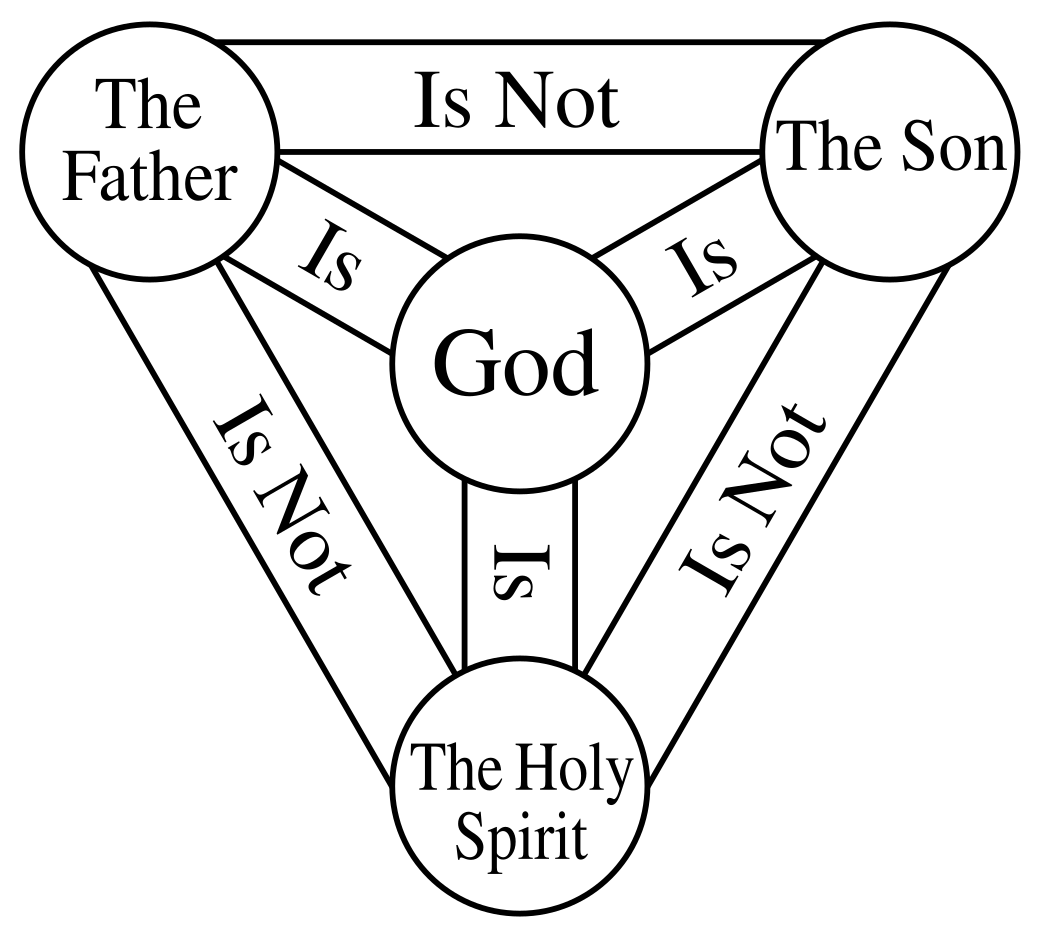- Mar 8, 2023
- 1,415
- 175
- Thread starter
- #81
Right. I'm quoting Him as Him saying that to you.Remember, you're not Jesus.
Follow along with the video below to see how to install our site as a web app on your home screen.
Note: This feature may not be available in some browsers.





Join Hidden in Him and For His Glory for discussions on how
https://christianforums.net/threads/become-a-vessel-of-honor-part-2.112306/
Right. I'm quoting Him as Him saying that to you.Remember, you're not Jesus.
A: the Father
B: without flesh
C: the Son
So, according to you:While all of A is B, not everything that is B is necessarily A. C is A; and A is B inasmuch as A is C.
There, you say that ALL of the Father is without flesh. Is the Son ALL of the Father? Yes or No?While all of [the Father] is [without flesh], not everything that is [without flesh] is necessarily [the Father]. [The Son] is [the Father]; and [the Father] is [without flesh] inasmuch as [the Father] is [the Son].
The Son is a distinct Person from the 1st Person of the Trinity (the Father without flesh); and the Son is all of the Father come in flesh.So, according to you:
There, you say that ALL of the Father is without flesh. Is the Son ALL of the Father? Yes or No?
I also changed my post since you posted, so you should go back and answer according to the changes. Because I wasn't thinking clearly when I posted the first time.So, according to you:
There, you say that ALL of the Father is without flesh. Is the Son ALL of the Father? Yes or No?
justbyfaith: <NO ANSWER>So, according to you:
There, you say that ALL of the Father is without flesh. Is the Son ALL of the Father? Yes or No?
Look again. I answered you (post #84 (https://christianforums.net/threads/coexistent-modalism-the-true-trinity.97351/post-1772676)).justbyfaith: <NO ANSWER>
You say that ALL of the Father is without flesh. Is the Son ALL of the Father? Yes or No?
That's your problem. Feel free to quote what you "posted the first time", and alongside it quote your "changes".I also changed my post since you posted, so you should go back and answer according to the changes. Because I wasn't thinking clearly when I posted the first time.
I don't remember what I posted the first time; and besides that, it was wrong. Why would I want for there to be a record of it?That's your problem. Feel free to quote what you posted the first time, and alongside it quote your changes.
I simply was thinking that B indicated "in flesh" instead of "without flesh" and posted accordingly; therefore I did not post the reality.That's your problem. Feel free to quote what you "posted the first time", and alongside it quote your "changes".
What (if anything) do you mean by your word "distinct" that you do not mean by your word "separate"?To help you understand try to understand the difference between the words "distinct" and "separate"
They were your own terms, and you didn't even know what you were saying!I simply was thinking that B indicated "in flesh" instead of "without flesh" and posted accordingly; therefore I did not post the reality.
Yes, that is so funny, isn't it?They were your own terms, and you didn't even know what you were saying!
Look at the OP. There I define Father, Son, and Holy Ghost as being distinct rather than separate.What (if anything) do you mean by your word "distinct" that you do not mean by your word "separate"?
What (if anything) do you mean by your word "separate" that you do not mean by your word "distinct"?
The Bible never uses your term "the Father come in flesh".The Son is a distinct Person from the 1st Person of the Trinity (the Father without flesh); and the Son is all of the Father come in flesh.
justbyfaith: <NO ANSWER>What (if anything) do you mean by your word "distinct" that you do not mean by your word "separate"
justbyfaith: <NO ANSWER>What (if anything) do you mean by your word "separate" that you do not mean by your word "distinct"?
By your phrase, "the same Spirit", are you denoting a person? If so, then which person are you denoting by it: the Father or the Son? If not, then what (if anything) are you denoting by it?I hold them as being the same Spirit
The Father, who is a distinct Person from the Son
So, when you say the Father "is distinct from" the Son, which do you mean: that 1) the Father is NOT the Son, or that 2) the Father IS the Son?The diagram that I am contending against defines them as being separate rather than distinct;
i.e. "the Father IS NOT the Son IS NOT the Holy Ghost".
Here, again, is the diagram you say you are "contending against":The diagram that I am contending against defines them as being separate rather than distinct;
i.e. "the Father IS NOT the Son IS NOT the Holy Ghost".

No, the Father is not the Son
Why can't you put a period immediately after "No, the Father is not the Son"? Are you trying to leave some sort of weasel loophole for yourself in case you later wish to say, "Yes, the Father is the Son (in that [blah blah blah])"?No, the Father is not the Son (in that the Father is not in flesh except in the Person of the Son).